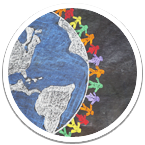Part 14: Encounters within the social sector
In part fourteen, writer and Master of Social Sciences Koko Hubara discusses everyday encounters in social work and how anti-racist measures could be a part of daily social work.
In the contribution, Hubara takes a stand on shortcomings in social work education and shares experiences of racism and racialisation from the perspective a social work student, social worker, and client. In Finland, social work relies heavily on the white standard and Europe-centred thinking with very little attention to issues such as skin tone (brown, white), racism, and anti-racism.
Hubara talks about shortcomings in the social work education, and discusses different ways to rectify the situation. Hubara reminds viewers that in social work, it is extremely important to have a holistic approach to meeting the clients. Anti-racism means actively loving thy neighbour.
Materials supporting learning
See Koko Hubara's slideshow (pdf 843 KB)
Key concepts:
- racism
- racialisation
- normative whiteness
- anti-racism
- colonialism
- forced assimilation
- “concept of race”
Read more about the key concepts.
Reflect on the following questions:
- What is the history of social work like in Finland, and why should it be discussed during social work studies?
- How should social work education be changed?
- What does a holistic approach to meeting clients mean, and why is it important?
- Think about Hubara's comment “anti-racism means actively loving thy neighbour” in relation to your work. How can you as a social worker meet your clients in a holistic manner?




